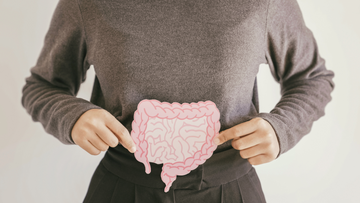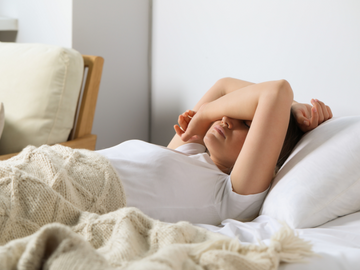
Caffeine, found in various beverages and foods, is a staple in many people's daily routines. While its stimulating effects are widely known, the intricate relationship between caffeine addiction and hair health is often overlooked. In this article, we'll explore the less-discussed connection between caffeine addiction and hair loss, shedding light on how your daily cup of coffee may be influencing more than just your energy levels.
The Mechanism Behind Caffeine Addiction:
Before delving into the impact on hair health, it's crucial to understand the mechanisms of caffeine addiction. Caffeine, a central nervous system stimulant, works by blocking adenosine receptors, leading to increased alertness and energy. Over time, regular consumption can lead to tolerance, dependence, and addiction as the body adjusts to these effects.
Caffeine's Role in Hair Health:
While caffeine itself is not directly linked to hair loss, the habits associated with caffeine addiction can contribute to conditions that may affect the hair. Let's explore the key factors:
1. Dehydration and Hair Follicles:
Caffeine is a diuretic, meaning it increases urine production and can contribute to dehydration. Dehydrated hair follicles may become brittle, leading to breakage and potential hair loss. Adequate hydration is crucial for maintaining the health of your scalp and hair.
2. Stress and Cortisol Levels:
Caffeine consumption can stimulate the release of cortisol, the body's primary stress hormone. Elevated cortisol levels are associated with increased hair shedding and can contribute to conditions like telogen effluvium, a reversible form of hair loss. Chronic stress, often linked to excessive caffeine intake, can exacerbate this effect.
3. Disruption of Sleep Patterns:
Caffeine's stimulant properties can disrupt sleep patterns, leading to insufficient rest. Poor sleep quality is linked to increased stress levels and hormonal imbalances, both of which can contribute to hair loss. Adequate sleep is vital for the body's natural hair growth and repair processes.
4. Nutrient Absorption:
Caffeine may interfere with the absorption of certain nutrients essential for hair health, such as iron and zinc. Deficiencies in these nutrients can contribute to conditions like alopecia, a form of hair loss characterized by bald patches.
5. Impact on Hormones:
Excessive caffeine intake may disrupt hormonal balance, particularly affecting androgens. Androgens play a role in hair growth, and imbalances can contribute to conditions like androgenetic alopecia, the most common cause of hair loss.
Mitigating the Impact:
If you suspect that caffeine addiction may be contributing to hair loss, consider the following strategies:
1. Hydration: Balance your caffeine intake with an increased consumption of water to maintain adequate hydration.
2. Moderation: Consider reducing your caffeine intake gradually to avoid withdrawal symptoms and support overall health.
3. Balanced Diet: Ensure a nutrient-rich diet that supports hair health, including foods rich in iron, zinc, and other essential vitamins and minerals.
4. Stress Management: Incorporate stress-reducing activities into your routine, such as meditation, exercise, or hobbies.
5. Regular Sleep: Prioritize quality sleep to support overall well-being and the body's natural hair growth cycles.
While caffeine addiction itself may not directly cause hair loss, the associated habits and effects on the body can contribute to conditions that impact hair health. Being mindful of your caffeine consumption, staying hydrated, and maintaining a balanced lifestyle are key steps in supporting not only your energy levels but also the health of your hair. If concerns persist, consulting with a healthcare professional or a trichologist can provide personalized insights and guidance.
The Mechanism Behind Caffeine Addiction:
Before delving into the impact on hair health, it's crucial to understand the mechanisms of caffeine addiction. Caffeine, a central nervous system stimulant, works by blocking adenosine receptors, leading to increased alertness and energy. Over time, regular consumption can lead to tolerance, dependence, and addiction as the body adjusts to these effects.
Caffeine's Role in Hair Health:
While caffeine itself is not directly linked to hair loss, the habits associated with caffeine addiction can contribute to conditions that may affect the hair. Let's explore the key factors:
1. Dehydration and Hair Follicles:
Caffeine is a diuretic, meaning it increases urine production and can contribute to dehydration. Dehydrated hair follicles may become brittle, leading to breakage and potential hair loss. Adequate hydration is crucial for maintaining the health of your scalp and hair.
2. Stress and Cortisol Levels:
Caffeine consumption can stimulate the release of cortisol, the body's primary stress hormone. Elevated cortisol levels are associated with increased hair shedding and can contribute to conditions like telogen effluvium, a reversible form of hair loss. Chronic stress, often linked to excessive caffeine intake, can exacerbate this effect.
3. Disruption of Sleep Patterns:
Caffeine's stimulant properties can disrupt sleep patterns, leading to insufficient rest. Poor sleep quality is linked to increased stress levels and hormonal imbalances, both of which can contribute to hair loss. Adequate sleep is vital for the body's natural hair growth and repair processes.
4. Nutrient Absorption:
Caffeine may interfere with the absorption of certain nutrients essential for hair health, such as iron and zinc. Deficiencies in these nutrients can contribute to conditions like alopecia, a form of hair loss characterized by bald patches.
5. Impact on Hormones:
Excessive caffeine intake may disrupt hormonal balance, particularly affecting androgens. Androgens play a role in hair growth, and imbalances can contribute to conditions like androgenetic alopecia, the most common cause of hair loss.
Mitigating the Impact:
If you suspect that caffeine addiction may be contributing to hair loss, consider the following strategies:
1. Hydration: Balance your caffeine intake with an increased consumption of water to maintain adequate hydration.
2. Moderation: Consider reducing your caffeine intake gradually to avoid withdrawal symptoms and support overall health.
3. Balanced Diet: Ensure a nutrient-rich diet that supports hair health, including foods rich in iron, zinc, and other essential vitamins and minerals.
4. Stress Management: Incorporate stress-reducing activities into your routine, such as meditation, exercise, or hobbies.
5. Regular Sleep: Prioritize quality sleep to support overall well-being and the body's natural hair growth cycles.
While caffeine addiction itself may not directly cause hair loss, the associated habits and effects on the body can contribute to conditions that impact hair health. Being mindful of your caffeine consumption, staying hydrated, and maintaining a balanced lifestyle are key steps in supporting not only your energy levels but also the health of your hair. If concerns persist, consulting with a healthcare professional or a trichologist can provide personalized insights and guidance.
Tags:





